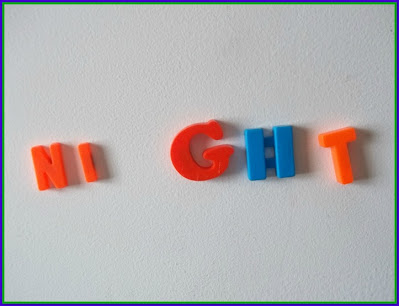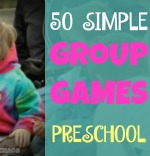Keeping ADHD Students Engaged with Games for the Classroom
Many teachers wonder how to keep students with ADHD focused and participating in the classroom. These students often face unique challenges with attention and impulse control, making it necessary to use specific strategies and engaging techniques. The best classroom games for keeping ADHD students engaged are interactive, hands-on, and designed to stimulate focus while allowing movement and creativity.
Understanding how ADHD affects learning can help educators better support their students and adapt activities to their needs. Games that blend structure with flexibility, such as educational scavenger hunts or memory-based challenges, encourage active participation and make learning more accessible. Choosing the right games can truly make a difference in classroom engagement for students with ADHD.
The information here is not intended as a substitute for professional medical diagnosis or treatment. Always seek the advice of your healthcare provider with any medical questions.
Key Takeaways
ADHD can make classroom engagement more challenging.
Interactive and movement-based games support engagement.
Tailoring activities to ADHD needs leads to better outcomes.
ADHD can make classroom engagement more challenging.
Interactive and movement-based games support engagement.
Tailoring activities to ADHD needs leads to better outcomes.
Understanding ADHD and Its Impact on Classroom Engagement
Attention deficit hyperactivity disorder (ADHD) is a neurodevelopmental disorder that significantly shapes how children participate and learn in classroom environments. Challenges with attention, activity level, and impulse control require thoughtful strategies to keep students engaged and supported.
Common Symptoms Affecting Classroom Participation
ADHD is characterized by patterns of inattention, hyperactivity, and impulsivity. These symptoms can make it difficult for students to focus during lessons, follow instructions, and stay organized. For example, a child might frequently lose track of assignments or become easily distracted by minor sounds or movements.
There are different types of ADHD, such as predominantly inattentive and predominantly hyperactive-impulsive presentations. In the classroom, symptoms may appear as daydreaming, excessive movement, or impulsive actions like calling out answers. Even brief group tasks can be disrupted if a student struggles to regulate impulses. These symptoms not only disrupt academic performance but also affect peer relationships and self-esteem. Early recognition and understanding of these behaviors allow educators to provide appropriate interventions.
Unique Learning Challenges for ADHD Students
Children with ADHD face unique difficulties related to executive functions, such as organizing tasks, managing time, and remembering instructions. This makes transitions between activities and complex assignments particularly challenging. It is common for these students to require repeated directions or help breaking down multi-step tasks.
Academic performance can suffer if learning activities rely heavily on sustained attention or passive listening. Written instructions or purely verbal explanations may be missed or forgotten. Many students with ADHD benefit from visual schedules, hands-on activities, and frequent reminders. Socially, students may also struggle to interpret cues or manage frustration during group play. These learning barriers require approaches that emphasize structure, clarity, and positivity.
Key Principles for Supporting Students with ADHD
Supporting children with ADHD starts with recognizing their needs for movement, structure, and immediate feedback. Effective strategies include breaking tasks into smaller steps, using visual aids, and providing clear, concise instructions. Teachers can use behavioral classroom management—such as reward systems and daily report cards—to encourage positive behaviors and engage students in their learning.
Regular physical or sensory breaks are valuable. Building in opportunities for fidgeting or movement can help students channel excess energy productively. Consistent routines and positive reinforcement help build confidence and motivation. By creating an environment attentive to their needs, teachers foster better participation and support academic success.
Best Classroom Games and Strategies for Engaging ADHD Students
Engaging students with ADHD requires activities that support movement, sensory input, and structured focus. The use of interactive games, hands-on learning, and targeted activities helps improve executive functioning skills, attention, and self-regulation.
Interactive Movement Games
Movement games break up long periods of sitting, offering students much-needed active breaks. Simon Says, Red Light, Green Light, and short yoga routines are simple ways to integrate physical activity while enhancing listening skills and impulse control.
Teachers often use brief “brain breaks,” such as guided stretches or energetic clapping patterns, to maintain concentration and reduce disruptive behavior. These breaks help reset attention and provide dopamine boosts that benefit working memory and organization. Incorporating movement breaks supports transitions and helps students refocus on academic tasks. Relay races and team challenges add opportunities for collaboration and positive reinforcement. Activities like these align with classroom management strategies recommended by the CDC for ADHD, as they allow students to expend energy in a productive manner.
Hands-On Learning and Sensory Activities
Hands-on activities help address sensory needs and keep engagement high. Using items like building blocks, modeling clay, or fidgets helps students channel energy constructively while supporting fine motor development and creativity. Sensory bins or textured materials offer tactile stimulation, which can calm or activate students as needed.
Interactive projects such as science experiments, art tasks, and sorting games encourage active participation. They also support organizational skills and executive function by requiring following steps and planning. These activities provide a structured learning environment with clear expectations and visual schedules, which foster a more supportive atmosphere for students with ADHD.
Conclusion
Selecting effective classroom games for students with ADHD requires a focus on engagement, movement, and clear structure. Incorporating activities like Jeopardy-style review games, hands-on learning, and rotating stations can help sustain attention and support participation.
Students with ADHD often benefit from games that include visual aids, simple rules, short-term goals, and opportunities for physical movement. Teachers can also encourage participation by providing frequent positive feedback.
Recommended Reading:
Art Develops Critical Thinking Skills
Sensory Play Aids in Childhood Development
























